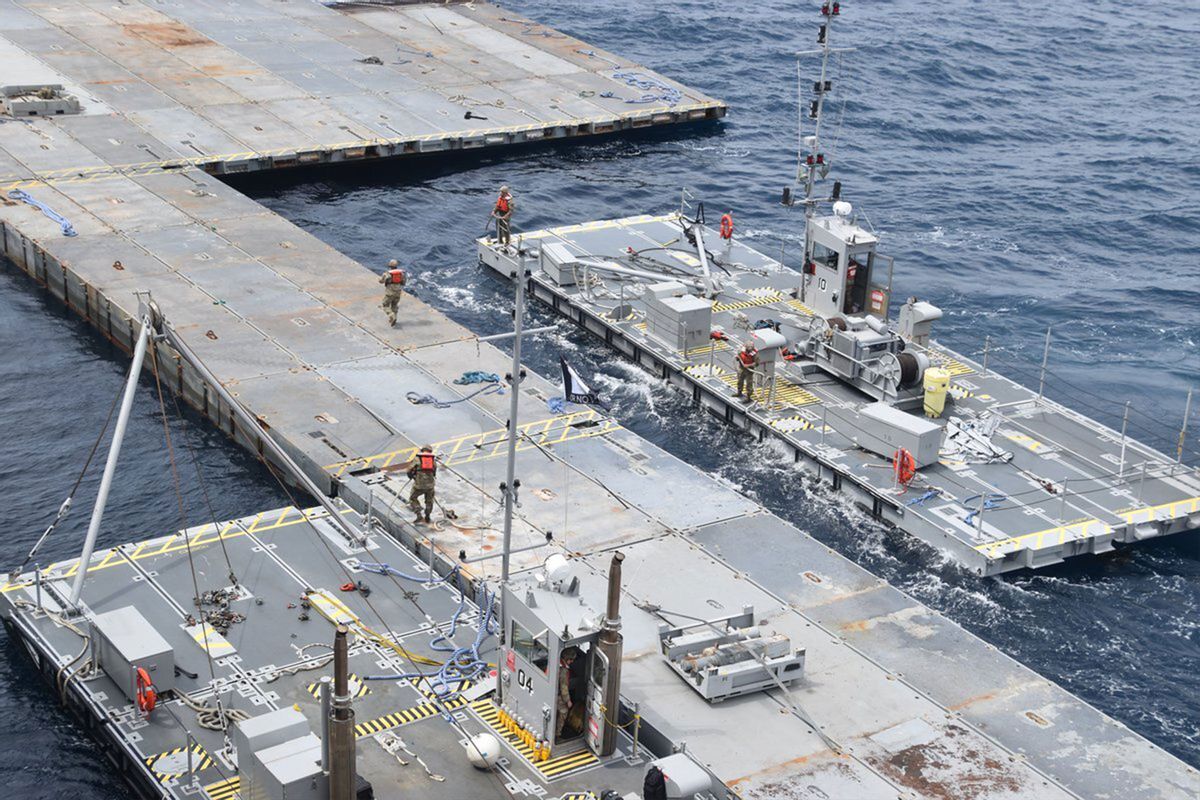Humanitarian aid began moving into Gaza on Friday using a temporary U.S.-built pier. Trucks delivered vital supplies to the besieged Palestinian enclave via the floating dock to avoid a possible famine as a result of significantly reduced aid coming from Israel-controlled points of entry
Aid trucks arrived in Gaza at about 9 a.m. local time (2 a.m. ET), U.S Central Command said on X, a day after the military completed construction on the pier.
In the next few days about 500 metric tons of aid will enter Gaza, the BBC reported. Hundreds of tons of aid arrived in Cyprus where it was screened and loaded onto commercial ships that will deliver it to the pier. U.S. vessels will also carry aid to the several hundred-meter-long pier, which is fixed to the beach in Gaza.
A State Department spokesperson said the U.S. was "deeply concerned about the reports indicating worsening conditions and imminent famine in Gaza."
Until two weeks ago, the main entry point for aid into Gaza was the Rafah crossing with Egypt, but Israeli forces have seized the Palestinian side as part of their ground assault into eastern Rafah. Hundreds of thousands of Palestinians have had to evacuate the city, which had previously been declared a “safe zone,” NBC News reported.
Although the Biden administration has extended its support to Israel, its frustrations over the humanitarian conditions in Gaza have grown. In particular, U.S. officials have said they oppose any full-scale invasion of Rafah and recently suspended a shipment of bombs that could be used in such an attack.
Israel has defended its operations in Rafah, saying they are currently “limited."
According to local health officials, over 35,000 people have been killed in Gaza since the Israeli assault launched following Hamas’ Oct. 7 attacks that had killed 1,200 people and resulted in some 250 people taken hostage.



Shares